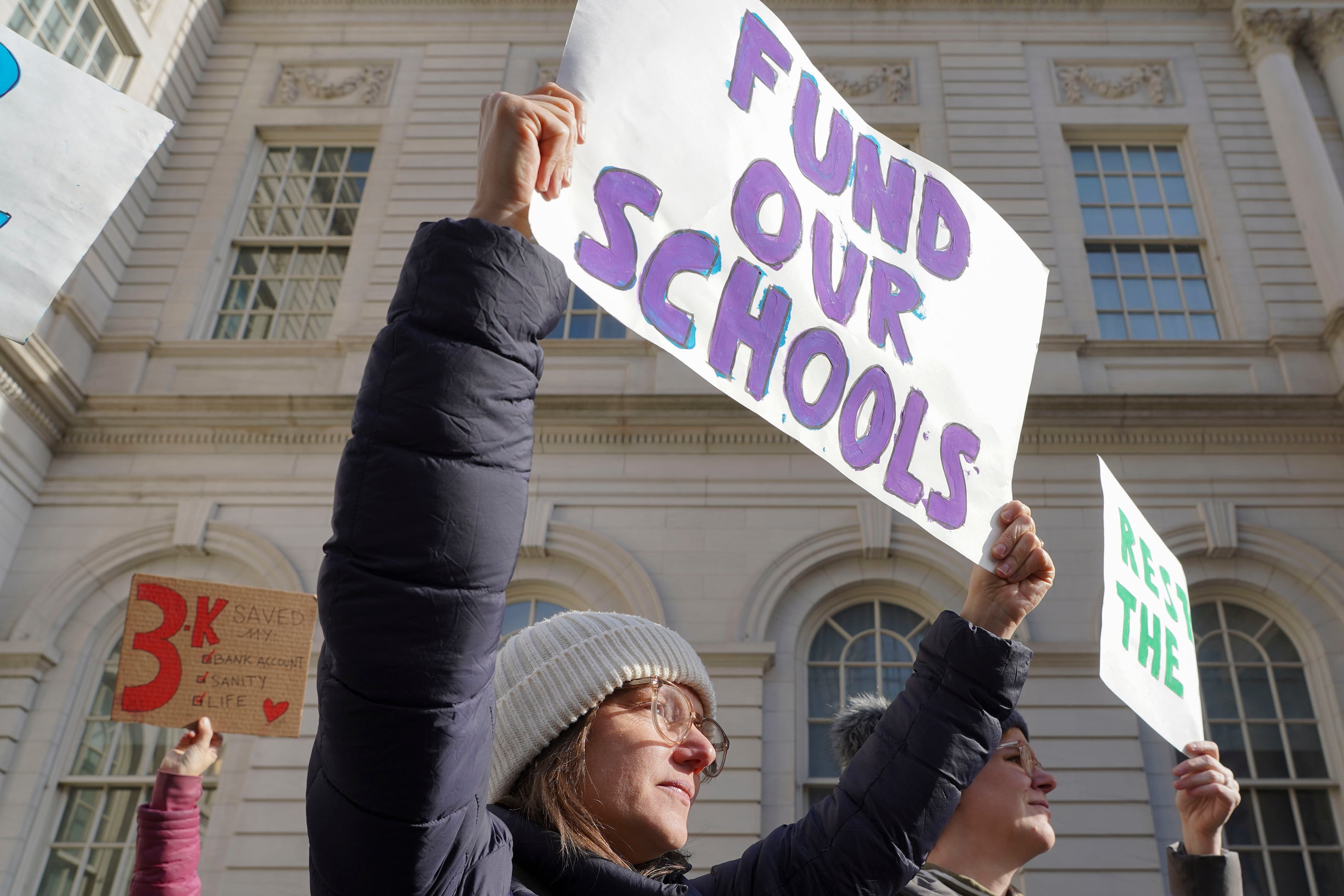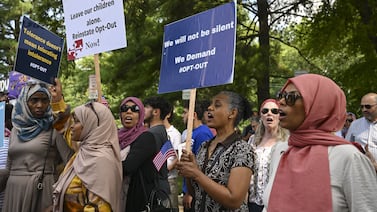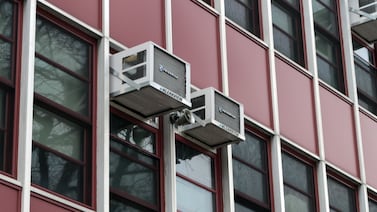Sign up for Chalkbeat New York’s free daily newsletter to get essential news about NYC’s public schools delivered to your inbox.
As the Trump administration runs a chainsaw through the U.S. Department of Education, New York City public school leaders raised concerns Thursday about possible cuts to federal programs that support vulnerable children.
They also worry about the impact of massive staffing cuts among their federal counterparts and revealed city schools received $8.4 million over the past two years from a U.S. Department of Agriculture program that was cut last week.
The cut to the federal food program, which helps schools buy from local producers, is among the first known Trump administration budget moves to trickle into city’s schools. It represents a small slice of the roughly $545 million in federal funding the city receives for school meals. (Officials said they are still expecting to receive the full $8.4 million, and though the funding is not expected in future years, they said they will continue to prioritize those items regardless.)
“We are lucky in that federal funding is not our largest funding source,” Emma Vadehra, the Education Department’s chief operating officer, said during a City Council budget hearing. About 5% of the city Education Department’s annual budget, or about $2.2 billion, comes from the federal government.
Still, federal funding streams “are usually dedicated for our most vulnerable students — our low-income students, our students with disabilities, our students in temporary housing,” Vadehra said. “It’s truthfully hard to know which of those funding streams is at greatest risk because it’s very unclear what is happening.”
Other federal changes could have an impact, too. Earlier this week, the U.S. Education Department announced plans to slash its workforce in half — including all of the staff at the regional Office for Civil Rights in New York. City officials suggested that could weaken protections for students.
And city Education Department leaders also pointed to cuts at the National Center for Education Statistics, which administers a congressionally mandated national test often referred to as the “nation’s report card.” That test helps policymakers understand how states and districts across the country stack up in reading, math and other subjects.
“The information we glean from that research is critical,” Vedehra said.
On top of anxiety about the federal government’s support of local schools, changes to the state’s funding formula are creating additional uncertainty about how much money will flow to New York City. Under proposed tweaks to the state’s school funding formula from Gov. Kathy Hochul, New York City’s public schools would stand to lose about $350 million compared to the current formula, according to city officials. (The state budget, and changes to the school funding formula, are still being negotiated. Lawmakers have suggested their own proposals to reshape the formula.)
“The fact that we might see a reduction in state funding compared to what we should have gotten, even as we’re looking at this federal situation, is very frustrating,” Vadehra said.
Alex Zimmerman is a reporter for Chalkbeat New York, covering NYC public schools. Contact Alex at azimmerman@chalkbeat.org.





